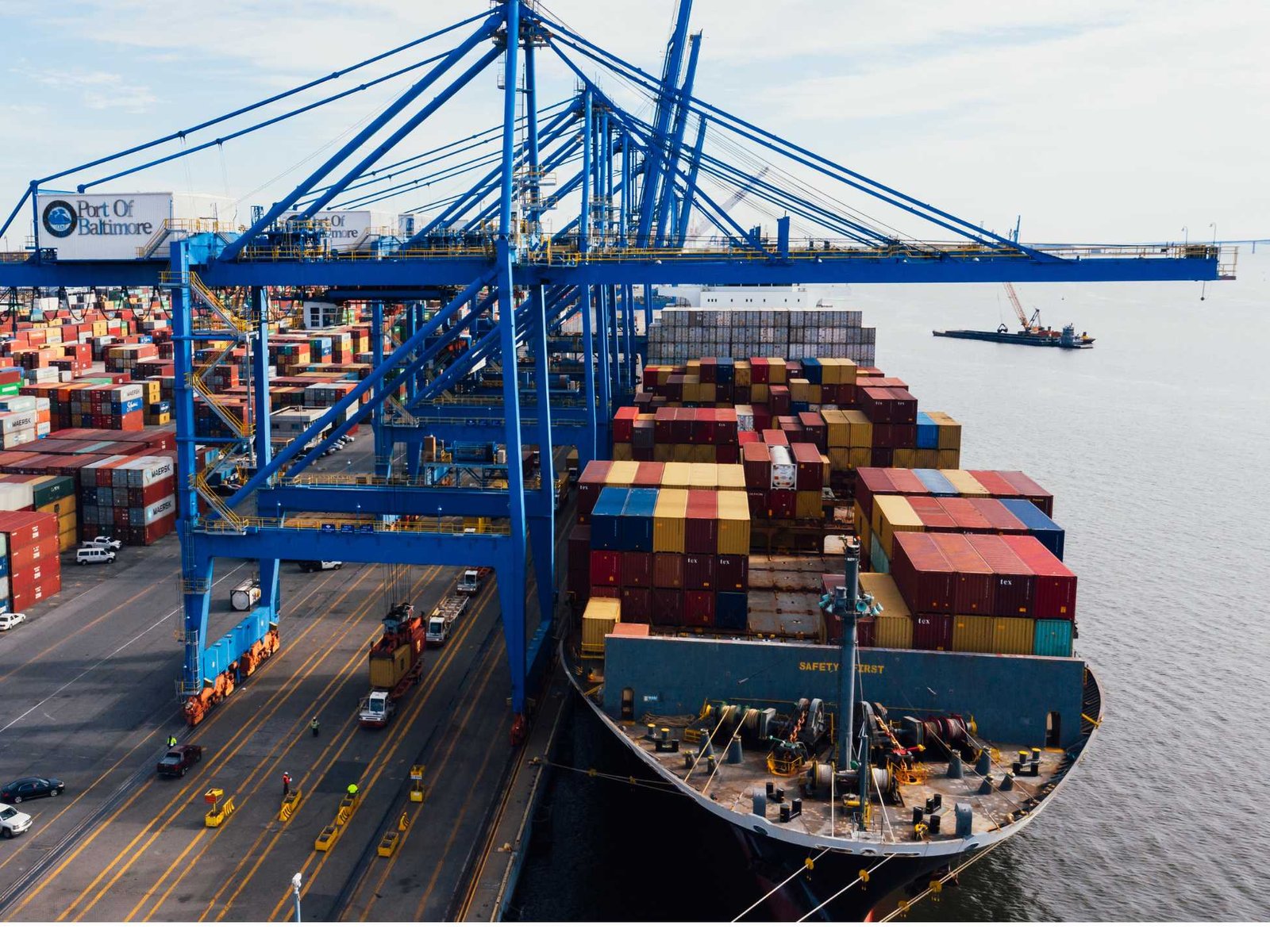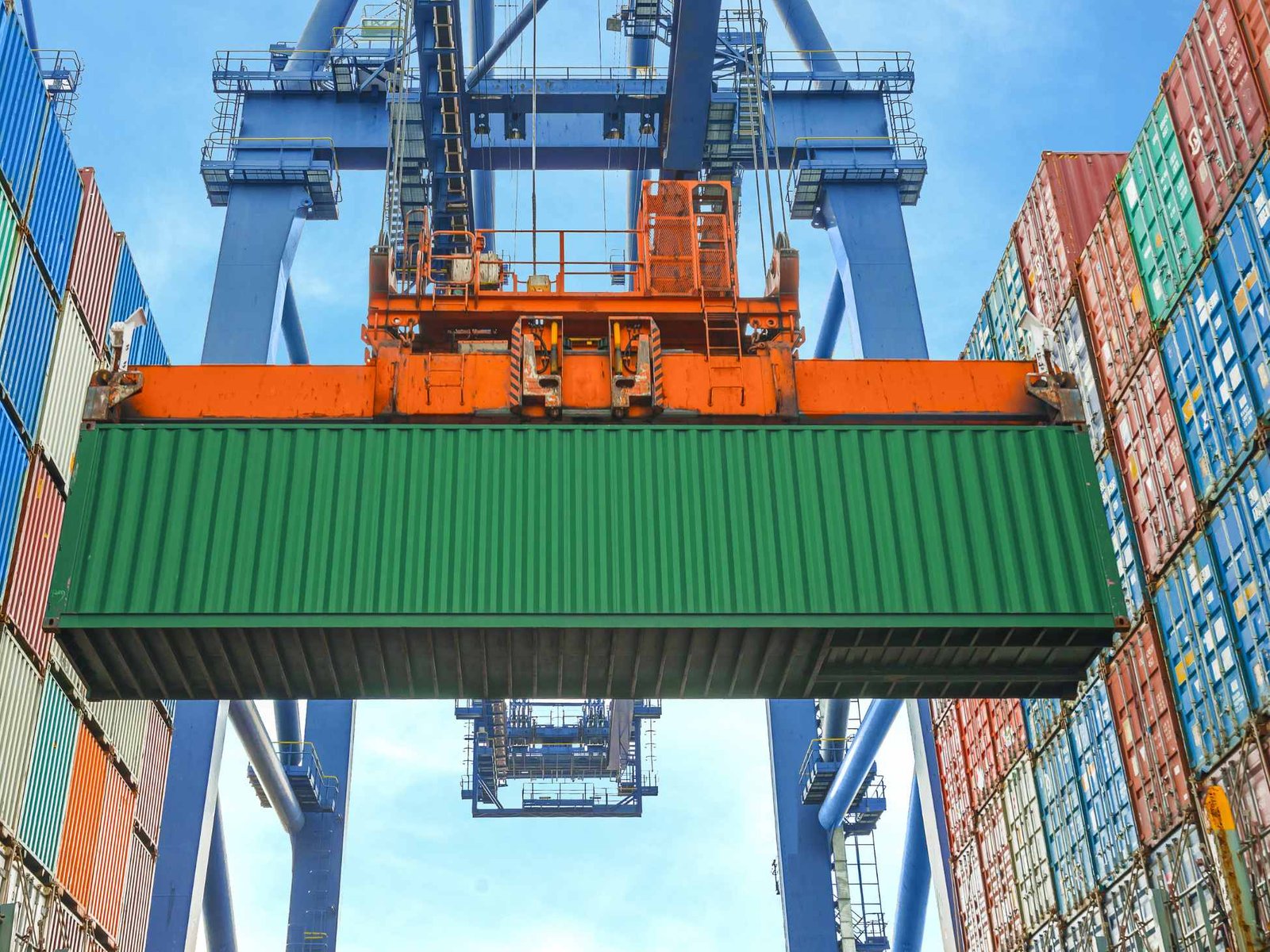The logistics industry plays a key role in the global economy, ensuring that supply chains operate efficiently and effectively. It is therefore a highly sought-after and competitive field for those looking to start a career. However, entering the world of logistics can seem daunting and overwhelming as there are many different paths and opportunities available. Different competencies and scope of activities are needed in each of these options.
Consider internships or entry-level positions
Considering internships or entry-level positions is an important step in getting started in logistics. While it may seem that these positions are entry-level and less prestigious, they are where you can gain valuable experience and practical skills. Internships are a great way to familiarise yourself with different areas of logistics and learn about the practical aspects of logistics. You can gain knowledge about warehouse management, transport, production planning and much more. In addition, working in entry-level positions will give you hands-on experience of how a logistics company operates, understanding its processes and challenges. It will also open the way for you to further develop your career, get promoted and get more advanced positions in logistics. Logistics is a science that is best absorbed in practice. It is very important to start your first job in this industry quickly and to further analyse in which direction you would like to go more. Often, the most sought-after people on the market are those who have already had exposure to the industry and one or two years' experience will already be valued in the eyes of employers.
Choose the direction in which you want to develop
To begin with, it is worth considering in which professional field we feel more comfortable. Do we want to work in the area of logistics sales, where we will be in direct contact with customers, offering a variety of services, or are we more interested in the technical aspect, such as working as a road forwarder, marine, rail or aviation. There are a number of different career paths in the field of logistics, such as warehouse management, customs procedures, etc. It is therefore worth considering in which direction we would like to develop, which will make it easier for us to acquire the necessary competences for our chosen profession.
In logistics, experience counts
In logistics, the most valuable thing is experience and what one knows how to do in practice. Companies are keen to hire such employees, due to the fact that they are often quickly ready to start work without having to train from scratch. However, what about when you want to enter the industry without experience?
We have an answer to that - it is then worth starting the search for your first job as soon as possible, it could even be for less money or even a free internship where you will already have acquired your first skills. During the course, it is also worth considering paid training courses depending on the path we want to take. A course on a particular logistics topic will certainly bring you closer to getting your first job in logistics.
Develop relevant skills and knowledge
When working in logistics, it is essential to constantly improve relevant skills and expand knowledge. Logistics is a dynamic and complex field in which new methods and regulations are constantly emerging. Therefore, it is important to keep up to date with the latest trends and practices in the industry. You can attend industry training courses, conferences and workshops that will provide you with new information and skills. In addition, make use of available online resources such as courses, specialist publications and industry blogs to systematically expand your knowledge. Remember that logistics is an area where innovation and improvement are integral, so don't stop developing yourself and be open to learning new skills to succeed in this field.
Make contact with industry specialists
An important step in developing a career in logistics is to connect with industry professionals. Many experienced professionals have a wealth of experience and knowledge that can prove extremely valuable in your career development. You can take advantage of various networking opportunities, such as attending industry conferences and networking events. These are excellent opportunities to meet experts, share experiences and gain valuable insights. In addition, it is also worth using social and professional platforms such as LinkedIn to connect with other logistics professionals. Building relationships with such individuals can provide you with not only support, but also opportunities for mentoring and development in your field. Remember, connecting with industry professionals can open doors to new opportunities that will contribute to your success in logistics.
Learn about supply chain management
Learning about supply chain management is a key milestone for those starting out in logistics. Supply chain management involves the complex coordination and optimisation of processes that affect the smooth flow of goods from suppliers to final customers. It requires not only precise inventory management, but also planning for efficient transport, data analysis and efficient interaction with diverse stakeholders. Understanding supply chain management enables precise identification of areas where improvements can be made, leading to increased operational efficiency. It is therefore worth exploring the strategies, tools and technologies used in supply chain management in order to be able to effectively contribute to the improvement of logistics processes and the achievement of an organisation's strategic goals.
Always develop and learn new things
In the world of logistics, one of the key factors for success is to constantly evolve and acquire new knowledge. The logistics industry is constantly evolving, introducing new technologies, methods and strategies. Therefore, it is important to be open to learning and ready to expand your skills. Whether you are a beginner in logistics or a seasoned professional, there is always room for development and improvement. You can attend training courses, courses and workshops to help you gain new skills and expertise. You can also read industry publications, keep up to date with the latest trends and practices, and attend conferences and industry meetings. Remember that keeping yourself up to date with the latest developments in logistics will help you to be effective and competitive in the job market.
Choose the right logistics career direction
In order to choose the right career direction in logistics, it is important to understand the different areas and specialisations within the industry. Logistics encompasses many areas such as supply chain management, transportation, warehousing, production planning and many more. Before making a decision, it is worth considering which of these areas interest you the most and which you feel most comfortable in. You can also consult professionals in the field who can give you guidance and advice on your career choice. Also, don't forget to research market trends and forecasts on the demand for specific skills and specialisations in logistics. It is important to choose a career direction that not only matches your interests and skills, but also has growth prospects and demand in the labour market.
Keep up to date with industry trends
In today's dynamic business environment, it is important to keep abreast of trends in the logistics industry. The logistics industry is constantly evolving, introducing new technologies, innovations and strategies to improve the efficiency and productivity of logistics operations. To be successful in your work in logistics, it is essential to have up-to-date knowledge of the latest trends, tools and best practices in the field. It is a good idea to follow industry magazines, attend conferences and training courses, and engage in industry networks to network with other professionals and gain valuable information. Keep abreast of developments in technology, changes in shipping regulations, sustainability trends and other factors that affect logistics. Striving for continuous improvement and adapting to the changing business environment will help you succeed in your job in logistics.
Constantly seek professional development opportunities
It is important to constantly seek professional development opportunities in the field of logistics. In order to succeed and advance in a logistics career, it is necessary not only to have up-to-date knowledge and skills, but also to strive for continuous improvement. There are many ways in which you can develop professionally in logistics. You can attend specialised training courses and courses, both online and onsite. It is also worth gaining practical experience by getting involved in logistics projects, either as part of your current job or on a voluntary basis. Furthermore, it is worth networking with other professionals in the industry, attending conferences and seminars to gain new insights into logistics and exchange knowledge with other experts. An unforgettable development opportunity is also to undertake postgraduate studies in logistics or obtain industry certifications to validate your knowledge and skills. Continuous pursuit of professional development in logistics will benefit both you and your organisation, enabling you to achieve higher positions and greater success in this dynamic industry.




